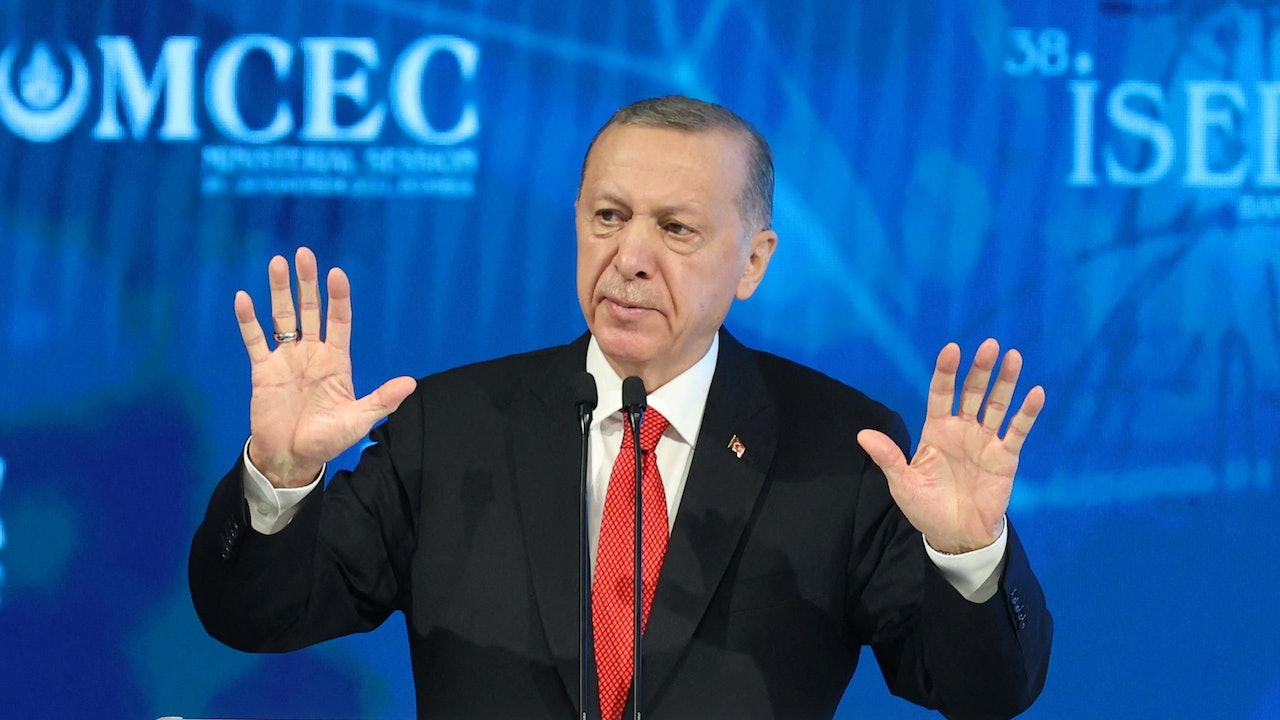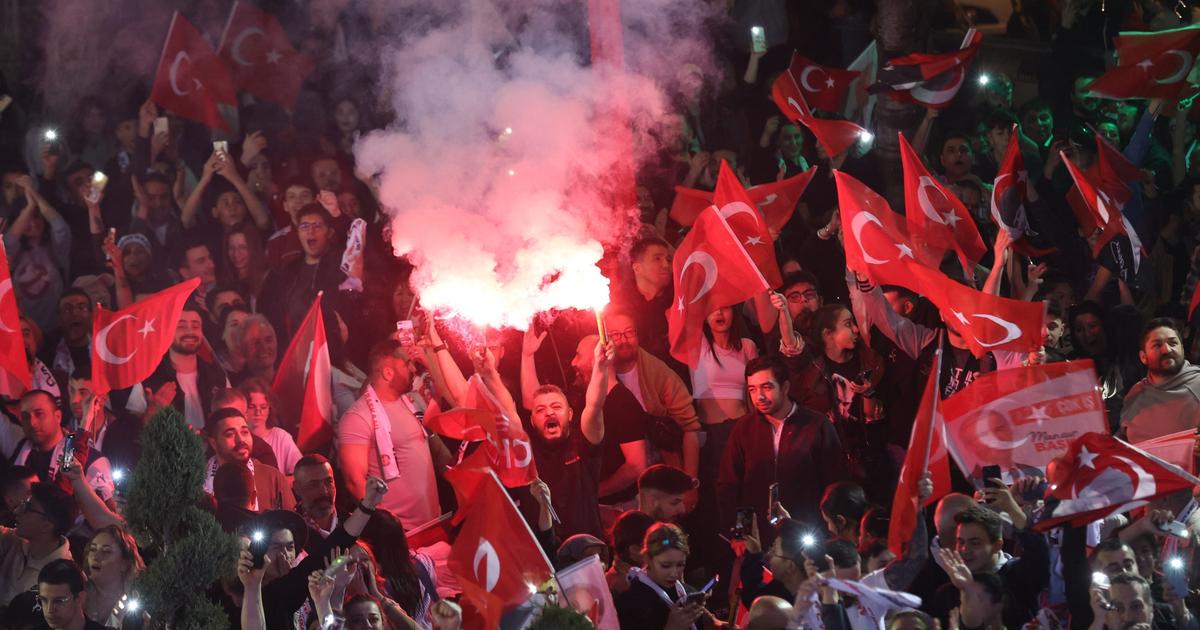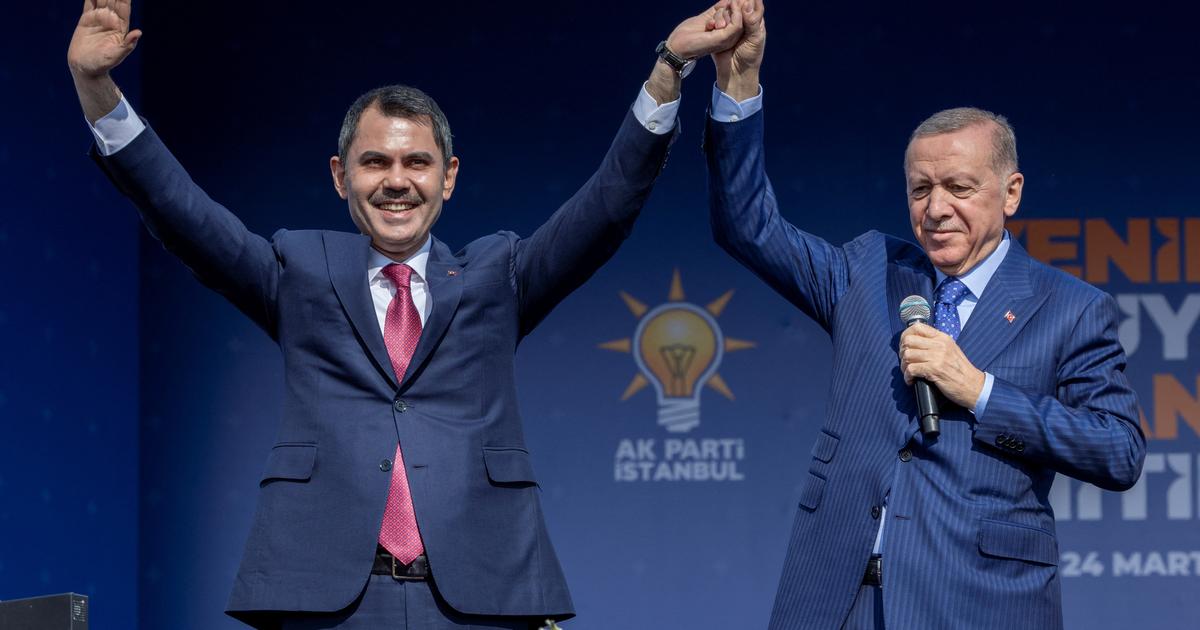On February 6, a 7.8-magnitude earthquake hit southeastern Turkey, followed by several aftershocks. Egypt, Denmark and Greenland felt the magnitude of the earthquake; the depth of the earthquake less than 20 kilometers caused Turkey and Syria to The serious loss of the former data is particularly tragic.
According to the latest information, more than 7,900 people died in the earthquake: more than 5,800 people were killed and more than 34,800 were injured in Turkey; more than 2,000 people were killed and more than 3,700 were injured in Syria.
Then with the rescue work carried out, the casualty data is expected to continue to rise.
The World Health Organization has warned when the death toll exceeded 3,400 that the final death toll could be as much as eight times higher, and Turkish geophysicist Şerif Barış also predicted that the death toll from the quake could be close to that of the Iraqi earthquake in 1999. The Zmit earthquake, a magnitude 7.6 earthquake that year killed 18,373 people.
The economic losses are equally staggering.
Turkish President Recep Tayyip Erdoğan said the quake was Turkey's worst disaster since 1939, spreading to more than 10 provinces and collapsing more than 6,000 buildings.
The U.S. dollar/Turkish lira exchange rate also hit a record low of 1 to 18.85. The Turkish stock market fell in tandem. The main stock benchmark fell as much as 5% at one point, and bank stocks also fell 5.5%.
The U.S. Geological Survey (PAGER) estimates there is a 34% chance that the earthquake will cause economic damage of between $1 billion and $10 billion, and a 30% chance of $10 billion to $100 billion ; The German think tank Risklayer also estimated that the economic loss of the earthquake was about 20 billion US dollars.
2023 is not only the 100th anniversary of the founding of Turkey, but also the 20th anniversary of Erdogan's power.
In 1923, the Republic of Turkey was born from the ruins of the Ottoman Empire, and gradually developed from the "sick man of East Asia" to a medium-sized power at the turn of Europe and Asia; in 2003, Erdogan became the prime minister of Turkey, and since then He has held the highest power in Turkey for 20 years and will run for president in May 2023 for the next five-year term.
The unexpected arrival of the strong earthquake disaster, although it has cast dust on Turkey's century-old statehood, may not end Erdogan's presidential dream.
On February 6, in Iskenderun, Turkey, a child was rescued and sent away on a stretcher.
(Getty Images)
Are strong earthquakes "destroying"
First of all, some analysts believe that the earthquake disaster will arouse public dissatisfaction and damage Erdogan's political prestige. Coupled with the high inflation in Turkey and the continuous integration of political opposition forces, the Erdogan regime should lose after the earthquake. Lose the election and end it completely.
Judging from the current situation in Turkey, the above narrative has some truth.
In the political arena, Erdogan's advantage is indeed not as good as before.
Looking back on the past, the Justice and Development Party (AKP) led by Erdogan has dominated the political arena for many years. The reason is not only the brilliant performance, but also the infighting among the opposition parties and the inability to unite.
However, after the outbreak of the lira crisis in 2018, Turkey's economy shrank and the unemployment rate rose. AKP lost many strongholds in the local elections in 2019, including the largest city Istanbul and the capital Ankara. After the referendum, Erdogan's presidential power was further expanded, institutional obstacles to re-election were also removed, and the timetable for holding power was extended again. The stimulated opposition parties finally woke up and decided to put aside their old grievances and seek unity.
In 2018, the four major opposition parties, the Republican People's Party (CHP), the Good Party (İYİ), the Happy Party (SP), and the Democratic Party (DP), formed the "National Alliance" (Millet İttifakı), advocating the restoration of the parliamentary system and the abolition of the executive presidential system. , hoping to contain AKP and Erdogan; in 2022, the Future Party (GP) and the Democratic and Progressive Party (DEVA) will join again to form the "Six-Party Round Table" (Altılı Masa), intending to jointly launch a president representing the opposition forces Candidates to compete with Erdogan in 2023.
Erdogan's government is embracing Turkey's most serious economic crisis.
(Getty Images)
As mentioned earlier, the economic field continued to be depressed after the 2018 lira crisis.
A closer look at the origin of the crisis shows that Western sanctions are only the fuse. The key is that Turkey, as an emerging market, cannot compete with the liquidity policy shift of a major financial country.
From 2008 to 2013, developed markets such as the United States, Europe, and Japan adopted multiple rounds of quantitative easing policies, and international "hot money" flooded into emerging markets including Turkey, stimulating the latter's high economic growth; After raising interest rates, foreign capital retreated massively, and currencies in emerging markets, including the lira, began to depreciate; in 2017, the Federal Reserve raised interest rates three times, and the Turkish economy began to be shrouded in the haze of capital flight, currency depreciation, and stock market instability. The import tariffs on Turkish steel and aluminum products were doubled, and the financial crisis broke out in tandem.
In the process of responding to the crisis, Erdogan obviously hoped to sacrifice prices and preserve economic growth, so he adopted extreme economic measures and insisted on cutting interest rates in the face of high inflation.
As a result, although economic growth was maintained to a certain extent, it also led to a plunge in the lira, soaring prices, and a near-collapse of the bond market. Many demonstrations broke out in big cities such as Istanbul, which damaged Erdogan's popularity among urban voters. Favorability.
Finally, returning to the earthquake, Erdogan is also facing the risk of review.
From the perspective of the cause of the disaster, although the Erdoğan government was unable to man-made an earthquake, determine the scale and intensity, it was partially responsible for the heavy casualties, that is, it failed to improve the phenomenon of uneven development and urban poverty, resulting in insufficient earthquake resistance Tall old buildings were vulnerable to strong earthquakes, causing a large number of casualties.
In fact, the fragility of buildings is not only a factor of oldness, but also the possibility of government-business collusion and cutting corners.
Taking the Aegean earthquake in 2020 as an example, a building collapsed in Turkey as well, resulting in the death of 115 people. When the prosecutors investigated the collapsed building afterwards, they found that some projects used inferior building materials and did not take structural safety into consideration. The relevant units even failed to fulfill their responsibilities. The investigation led to the prosecution of dozens of builders and public officials.
The disaster is dozens of times worse than in 2020. Afterwards, the review may not be able to avoid the above-mentioned scandals, and public dissatisfaction may surround Erdogan.
On February 6, in Kahramanmaras, Turkey, residents spent the night outdoors in the open and gathered around the fire to keep warm.
(Reuters)
Erdogan is no political rookie
However, from a practical point of view, although the above inference is logical, it may not be in line with Turkey's political situation.
Because Erdogan is not only an experienced political elite, but also an incumbent president with abundant resources.
In the political arena, the opposition parties have indeed formed a cooperative situation, but it is difficult to deal a blow to Erdogan.
In October 2022, the Turkish Parliament passed Article 29 of the "Untrue Information Act", stating that those who publicly disseminate misleading information will face 1 to 3 years in prison.
However, because the language of the bill is vague and the standards are unclear, its possible real effect is to clamp down on anti-AKP independent media and consolidate Erdogan's authority and election advantages.
In addition, Erdogan's strong opponents also "withdrew" one after another due to various reasons.
The mayor of Istanbul, Ekrem İmamoğlu, was originally polled extremely high, but in December 2022 he was sentenced to more than 2 years in prison and deprived of public rights for allegedly insulting the Supreme Election Commission, disqualifying himself for the presidential election; Ankara Mayor Mansur Yavaş is equally prestigious, but he is regarded as a Turkish nationalist and is not popular with voters of the left-wing People's Democratic Party (HDP). Declared support for CHP leader Kemal Kılıçdaroğlu, but the latter trails Erdogan in the polls and has little chance of winning.
As for the aforementioned opposition alliance "Six-Party Round Table", it has not been able to propose a joint candidate so far, which should be due to the unresolved conflicts and the difficulty in finding strong candidates.
Searchers look for survivors in the city of Diyarbakir, near the epicenter of the earthquake, on February 6, 2023.
(Reuters)
On the economic level, Erdogan will introduce many benefits to please voters in 2022, hoping to buffer public grievances about high inflation.
It first provided subsidies for low-income families, set up a national fund to protect deposits from depreciation, and approached the end of 2022, raising the minimum wage by 55% in one go, raising civil servant salaries by 30%, providing loan subsidies to businessmen and small and medium-sized enterprises, and abolishing the minimum retirement age restrictions, giving 1.5 million Turks immediate access to pensions.
Of course, this series of preferential measures cannot alleviate Turkey's economic ills, and it is not beneficial to real economic growth, but it can obviously increase Erdogan's election advantages.
As for the potential political risks of the earthquake, Erdogan cannot sit still without feeling it.
In 2021, a wildfire broke out in Turkey. The fire continued for several days and spread to 35 provinces. Although the government dispatched drones to rescue the fire, it was still difficult to stop the fire.
The irony is that Erdogan, perhaps in order to project a confident strongman image, refused international aid at the beginning of the wildfires. Seeing that the situation was out of control, he tried to point the finger at the Kurdistan Workers Party (PKK), but it has been difficult to gain public opinion. understanding.
After this lesson, Erdogan should have learned the importance of "showing weakness" and "immediacy", so after the earthquake, he immediately requested international assistance, and introduced in detail the government's planned rescue and humanitarian assistance in front of the camera. Work, hoping to appease the grief and anger of the people.
At the same time, Erdogan exaggerated the earthquake as "the worst since 1939" and completely ignored the Izmit earthquake in 1999. The purpose is to amplify the power of natural disasters and divert the human factors that caused the collapse of large buildings. review.
After all, after the strong earthquake in Izmit in 1999, Turkey has passed a series of new building laws to standardize and improve the earthquake resistance of new buildings. Erdogan knew that he was to blame for this matter, so he wanted to try to divert the artillery fire.
On February 6, 2023, after an earthquake in Turkey, many buildings in Kahramanmaraş collapsed like ruins.
(Reuters)
In addition, Erdogan also announced that 10 provinces will enter a state of emergency for three months. Taking February 6 as the starting point, it will end just before the May 14 presidential election. Erdogan has the power space to regulate the news in the disaster area and buffer public grievances.
It is foreseeable that in the next few months, Erdogan will be frequently exposed in the disaster area, cultivating the image of himself as a father who provides immediate assistance and promises to carry out long-term reconstruction. However, the Erdogan government now has most of the mainstream media in Turkey, and is fully capable of accusing the opposition parties of "taking advantage of disasters to carry out political struggles" and "consuming people's blood and tears". Under this situation, the opposition parties may try to preserve political energy , but had to give up the criticism and turned to mobilizing aid and supporting the government's disaster relief.
In the final analysis, under the measures of cracking down on strong opponents, introducing welfare policies, and buffering earthquake damage, Erdogan is still the strongest presidential candidate in Turkey at present, and his chances of re-election are very high.
However, not only will the presidential election be held in 2023, but Turkey’s national parliamentary election will also be held. Although Erdogan has a chance of re-election, he may not be able to boost the AKP election; in the absence of a strong opposition candidate, although the people have You may vote for Erdogan, but you may not be willing to vote for AKP. After all, the public grievances caused by the sluggish economy and the earthquake disaster cannot be underestimated.
If Erdogan is re-elected successfully, but the AKP’s seats decline severely, or even lose the majority of the parliament, the former’s ability to govern will be greatly reduced, and the political order and successors of the “post-Erdogan era” may have to be arranged in advance, and Turkey will also be affected accordingly. Entering a complex and unpredictable period of political competition.
Why the earthquake may affect Erdogan's re-election?
Collusion between the government and construction companies may become a hot topic. Failure to renovate old buildings in the city will also attract accusations of class inequality, urban poverty, and unequal development.
Why is Erdogan's chances of re-election still high?
The opposition lacks a strong candidate, Erdogan is trying to use welfare policies to dispel economic grievances, and the political disputes triggered by the earthquake may also be maintained to maintain stability and harmony.
Earthquake animals in Turkey knew about it?
Before the earthquake, there were wild rumors that flocks of birds were flying around strangely and they collectively stopped on trees. Turkey earthquake|Shocking news that Tang Xiaoqiang, a local artist from the mainland, was "buried under the ruins of the hotel" The life and death of Turkey earthquake|The death toll increased to 7,800 Earthquake|The 28-year-old Tujia goalkeeper died and the club announced his death: We will not forget that the mayor of Istanbul became a prisoner?
In the current general election, Erdogan's Turkey is hard to hope for calm and ordered air strikes on the opening day of the World Cup: Turkey is also preparing for "special military operations"?









